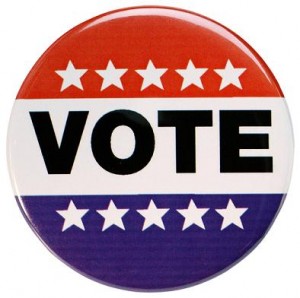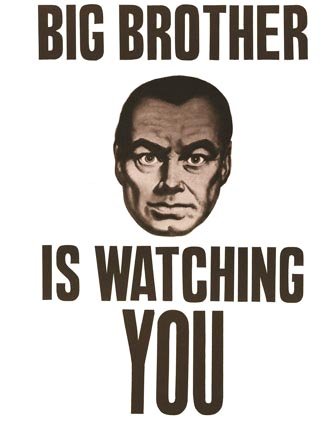Blog wrapup: Election!, online behavior, and justifications
Posted in The Gnovis Blog
at gnovis, election!
 Before November 4th @ 8PM PST:
Before November 4th @ 8PM PST:
The election left us netizens awash with technical ways in which to observe, participate and predict the outcomes of this election. I wrote about a grass-roots initiative to detect voting problems via Twitter at TwitterVote. Ashley, talked about the proliferation of poll-watching websites, but reminded "everyone that no matter what all the projection polls say, the only poll that really matters is the last one… Isn’t it time for us to get to call elections like the talking heads on TV? Yes. It. Is."
After November 4th @ 8PM PST:
Now that the election is won, to what did all of these polls and viral videos amount? Brad authored a post documenting his experience and thoughts about this election season. It includes the blogs, and the polls, and the way in which Washingtonians gathered at the White House once the results were announced. I will never forget where I was that night, but even so, it seems we were all still taking pictures. "…in a hyper-mediated era, what will be the media-bites that come to define this moment, in our collective memory? How will we choose from all this stuff?"
Everyone I talk to here in DC seems to agree: Something has changed. Trish eloquently captures this new spirit when considering what it means to be an American. Quoting Obama’s speech on election night, "Tonight we proved once more that the true strength of our nation comes not from the might of our arms or the scale of our wealth, but from the enduring power of our ideals: democracy, liberty, opportunity and unyielding hope. That’s the true genius of America: that America can change." Thank you Trish for what was a very touching post.
around cct, online behavior
 Ben Turner, this year’s Junior Yahoo fellow, poresents a possible model for attritudes about online privacy. Considering the different privacy attitudes around the world, he proposes that privacy attritudes may emerge out of social bevaior and fear of the government. This an interest thought in the growing body of work around the contexts the inform our user/computer relationships.
Ben Turner, this year’s Junior Yahoo fellow, poresents a possible model for attritudes about online privacy. Considering the different privacy attitudes around the world, he proposes that privacy attritudes may emerge out of social bevaior and fear of the government. This an interest thought in the growing body of work around the contexts the inform our user/computer relationships.
Ashley writes a post rejecting a get out the vote effort on Facebook. Apparently petitions, phone calls, and donations are great, but tampering with her Facebook status is across the line. We all have to have boundaries, right?
Finally, I took issue with some overly simplified explinations for online rage in a CNN article on anonymous anger. "I am far from a doom sayer when it comes to the internet (quite the opposite, actually), and it may be that these anonymity/anger effects are contextually bound to communication on blogs and chat rooms. Either way, it is interesting to consider how anonymity is used as a tool, regardless of the objective."
around the blogosphere, justification
 With "good design" increasingly codified into cheap furniture sold in large blue and yellow stores (which I love), where should the designer inovate? Tad Toulis at Core 77 makes the case for "ugly": "Embracing the word "ugly"—so readily identified with everything popular design claims to have been a reaction against—seems a logical choice if we are to create a vision for the practice of design freed from the restrictions and prejudices of its past."
With "good design" increasingly codified into cheap furniture sold in large blue and yellow stores (which I love), where should the designer inovate? Tad Toulis at Core 77 makes the case for "ugly": "Embracing the word "ugly"—so readily identified with everything popular design claims to have been a reaction against—seems a logical choice if we are to create a vision for the practice of design freed from the restrictions and prejudices of its past."
David Spark over at Mashable, gives us the classic "Top X" list for twitter in his post "Sixteen Great Twitter Moments". I’ll admit, going over 10 items was daring, but this list is really good. Try this one the next time someone says Twitter has no value: "Andrew Warner (@andrewwarner) was stuck late at night with his bicycle on the side of the PCH (Pacific Coast Highway) in Los Angeles. Andrew called a cab and 911 and neither would pick him up. Alone, he Twittered his dilemma and a Twitter friend (@KenFeldman) offered to pick him up. Others not in the neighborhood kept him company by Tweeting. While he wanted to take Ken up on his offer, Andrew’s girlfriend eventually was able to pick him up."
